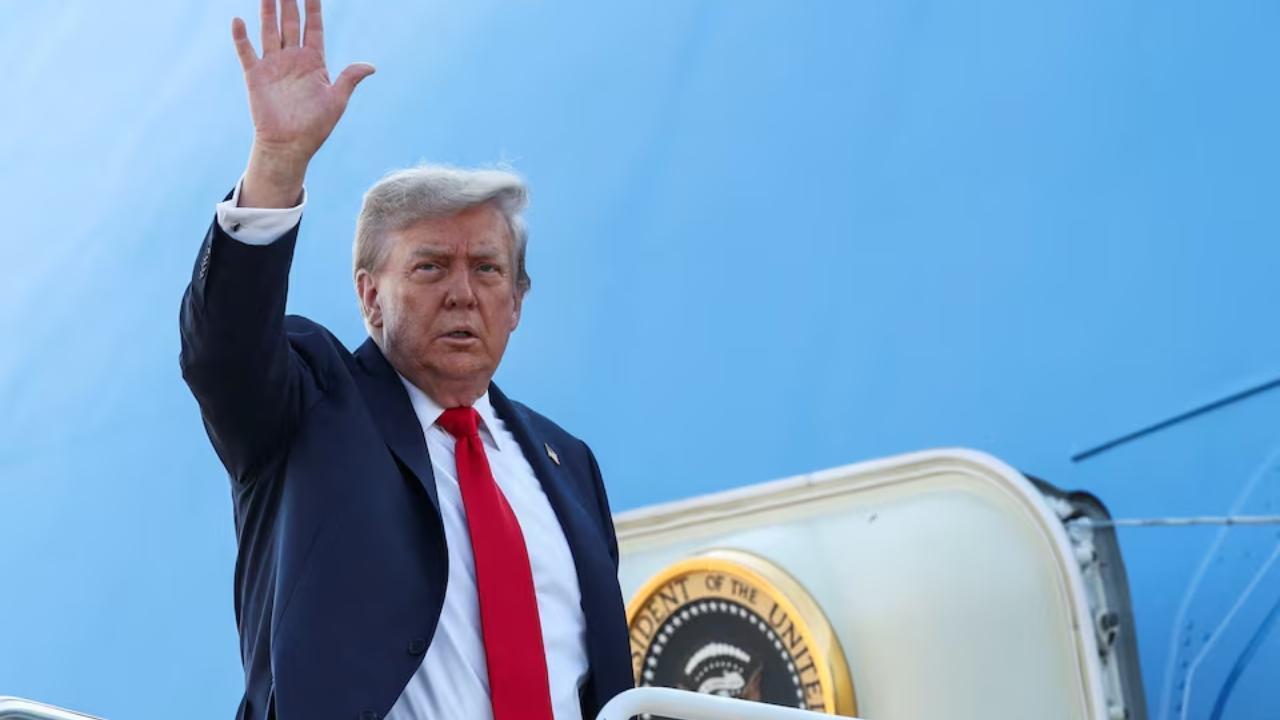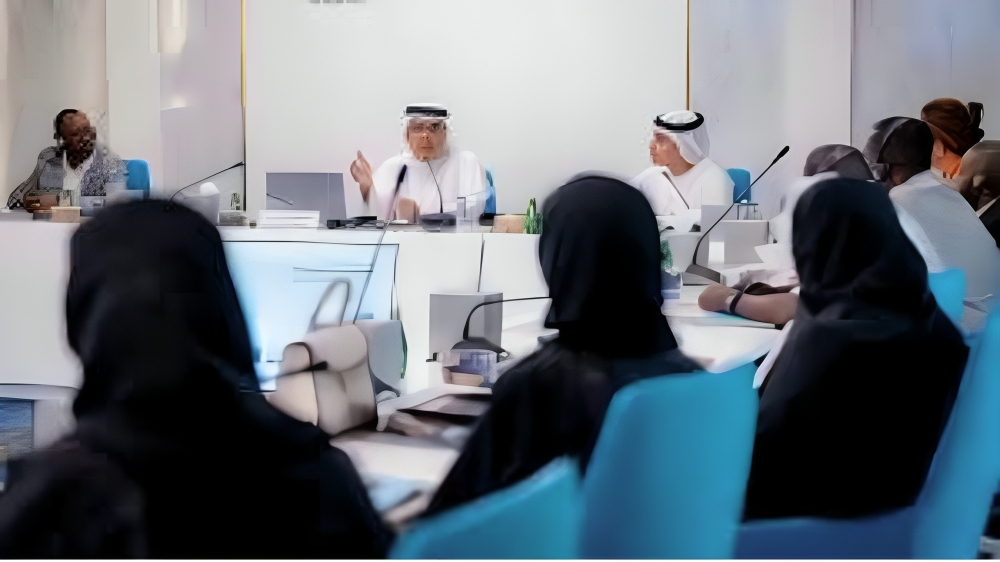
Post by :
Photo: Reuters
In 2025, a unique situation happened in the United States involving some of the country’s top law firms and President Donald Trump. Earlier that year, nine major law firms made agreements with Trump. These agreements were meant to avoid problems after Trump issued executive orders against them.
These orders targeted the firms for various reasons. Trump said these firms had been “weaponizing” the legal system against him and his allies. He also criticized their diversity programs, calling some of them discriminatory.
The executive orders aimed to limit the firms’ access to federal buildings, officials, and certain government work. Essentially, Trump wanted to punish the firms for their past work, which included representing his political opponents or working on investigations connected to him.
The orders created concern across the legal community. Many people thought these agreements could stop law firms from taking cases against Trump or his administration.
The agreements included pledges to provide free legal services for causes that Trump supported. For example, some of the pro bono work—meaning legal work done for free—was to benefit veterans or other groups favored by Trump.
The total value of all these promised services was nearly $1 billion. Despite these commitments, the agreements did not officially stop the firms from taking cases against the administration. However, some critics warned that the deals could have a chilling effect on legal independence.
By mid-2025, at least four of these nine law firms were actively representing clients in lawsuits against Trump’s administration. These firms were Latham & Watkins, Willkie Farr & Gallagher, Skadden, Arps, Slate, Meagher & Flom, and Milbank. The cases they handled involved several important issues, including transgender rights, immigration policies, tariffs, and offshore wind power projects.
One example is Latham & Watkins. This firm was hired by a joint venture backed by Orsted, a Danish energy company. The federal government had stopped construction of the company’s offshore wind farm in Rhode Island. Latham & Watkins took the case to challenge this decision.
They argued on behalf of the energy company to continue the project, which was important for renewable energy and local jobs.
Willkie Farr & Gallagher took on another high-profile case. They represented school districts in Virginia, specifically in Arlington and Fairfax counties. These districts sued the administration because they were worried about losing federal funding.
The funding was at risk because the Trump administration said the schools’ policies, which allowed transgender students to use bathrooms and locker rooms that matched their gender identity, violated federal law. Federal law bars sex discrimination in education, and the schools wanted to protect the rights of transgender students.
Milbank was involved in multiple cases. In June, the firm represented small businesses that sued the government over Trump’s use of emergency powers to impose sweeping tariffs. Later, Milbank began representing the New Jersey cities of Newark and Hoboken.
These cities had been accused by the administration of unlawfully shielding residents from federal immigration enforcement. The cities argued that their local policies were legal and aimed at protecting their communities.
Skadden Arps partnered with the National Immigrant Justice Center, a nonprofit organization supporting low-income immigrants. Together, they filed a lawsuit on behalf of a Mexican woman who had been denied a visa meant for victims of crime. The administration’s refusal to grant her the visa was being challenged as unfair and discriminatory.
Legal experts noted that law firms often face pressures when handling cases against the government. Representing clients in high-profile government lawsuits can bring prestige and revenue. Michael McCabe, a business lawyer who advises other attorneys, said, “A lot of litigation is opposed to the federal government. All of that work is an important part of a law firm economy.”
At the same time, these firms had to balance their responsibilities under the agreements with Trump. While the agreements did not explicitly forbid taking cases against the administration, the firms were likely aware of the potential risks.
Some may have avoided certain cases to prevent angering Trump or jeopardizing their deals. Others were willing to take on challenging cases because defending clients’ rights and challenging government policies is a key part of their work.
Trump had returned to office in January 2025 and quickly used executive orders to target the firms. Some orders were directed at five firms in particular. These orders accused the firms of using the legal system to harm Trump or promote diversity policies that he opposed.
Four of these targeted firms later sued Trump in response. They argued that his executive orders violated the U.S. Constitution’s First Amendment, which protects freedom of speech and prevents the government from limiting people’s rights. Courts agreed with the firms in these cases.
Another firm, Paul Weiss, reached an agreement with Trump and avoided the litigation process. Eventually, Trump rescinded the directive against Paul Weiss. In total, nine firms made agreements to provide pro bono work in exchange for avoiding restrictions and penalties from the administration.
These agreements received criticism from politicians and legal observers. U.S. Senator Richard Blumenthal and Representative Jamie Raskin, both Democrats, expressed concern.
They wrote letters to the firms warning that the agreements allowed Trump to “suppress their speech and dictate who they can and cannot take as clients.” The letters suggested that these deals could undermine the independence of the legal profession.
Firm leaders defended the agreements, stating that they retained control over the cases they chose to handle. They argued that the deals did not stop them from representing clients against the administration. They also emphasized that pro bono work and other commitments were voluntary and did not interfere with their other legal work.
The cases taken by the four firms highlight some of the major legal challenges faced by the Trump administration. Transgender rights, immigration policies, tariffs, and renewable energy projects were all areas of legal contention. These cases reflect ongoing debates about civil rights, government power, and the balance between local, state, and federal authority.
For example, the school district cases in Virginia involved civil rights issues for transgender students. These students sought to use facilities that matched their gender identity. The Trump administration argued that this violated federal law prohibiting sex discrimination. These lawsuits became a national topic because they involved students’ rights, federal funding, and education policy.
Immigration cases, like those handled by Skadden Arps, focused on visa access and protections for low-income immigrants. Lawsuits against federal enforcement policies in New Jersey cities examined how local governments interact with federal immigration agencies. Tariff-related cases challenged the use of emergency powers to impose economic restrictions, which affected small businesses and the economy.
The wind energy project in Rhode Island, represented by Latham & Watkins, also raised environmental and economic issues. Offshore wind projects are important for reducing carbon emissions and creating clean energy jobs. Stopping such projects can have long-term consequences for energy policy and local communities.
Overall, these lawsuits show the complex role of law firms in American society. Firms must balance ethical obligations, business interests, and the potential impact of political pressure. They also need to protect clients’ rights while navigating the influence of the government.
Legal experts noted that the situation is unusual but not unprecedented. Law firms regularly face conflicts between business considerations and ethical responsibilities. Cases against the government are important for maintaining checks and balances in a democracy. They also allow individuals and organizations to challenge policies they believe are unfair or unconstitutional.
The agreements with Trump added an extra layer of complexity. While they offered certain protections for the firms, they also raised concerns about independence and impartiality. Critics worried that similar agreements could set a precedent for government influence over law firms in the future.
In conclusion, the situation with these nine law firms and Trump demonstrates the delicate balance between law, politics, and business. Some firms honored their agreements while also taking on significant cases against the administration. They challenged policies on civil rights, immigration, tariffs, and renewable energy. These cases have the potential to shape public policy and legal standards for years to come.
At the same time, the firms maintained their professional autonomy and continued to defend their clients’ interests. The disputes illustrate how law firms can operate independently even under political pressure. They also show how legal challenges remain a critical avenue for protecting rights and ensuring accountability in government.
This ongoing story highlights the importance of legal independence, civil rights protections, and the role of law firms in holding governments accountable. As cases progress, they may influence how future administrations interact with law firms and how legal professionals navigate ethical and political challenges.
The actions of these law firms have drawn attention from across the political spectrum. Some see their work as defending the rule of law and civil liberties. Others are concerned about the potential conflicts arising from agreements with political leaders. Regardless of perspective, these cases underline the significance of the legal profession in a democratic society.
Law firms continue to balance multiple priorities. They must serve clients, comply with agreements, protect their reputations, and navigate complex political landscapes. These responsibilities often require careful planning, ethical judgment, and strategic decision-making.
Ultimately, the cases taken by Latham & Watkins, Willkie Farr & Gallagher, Skadden Arps, and Milbank reflect a commitment to legal advocacy and client service. They also reveal the challenges law firms face when their work intersects with politics and government policy.
The outcomes of these cases may influence legal standards and policy decisions for years, shaping how law firms approach cases against powerful institutions in the future.
The story of these law firms and Trump underscores the ongoing tension between legal independence and political influence. It illustrates that even in situations with agreements and potential restrictions, law firms can continue to represent clients effectively. Their work serves as an example of how legal professionals navigate complex ethical and political landscapes while upholding the law and protecting individual rights.
executive orders










Varun Chakravarthy Becomes World No.1 In ICC T20I Bowler Rankings
India’s Varun Chakravarthy rises to No.1 in ICC T20I bowling rankings after strong Asia Cup performa

Texas State University Expels Student Over Charlie Kirk Mocking
Texas State University expelled a student for mocking Charlie Kirk’s assassination at a memorial eve

Japan Trade Deficit Shrinks As Exports Improve In August Report
Japan’s trade deficit in August was smaller than expected, supported by stronger exports and a new t

US Tech Giants To Invest $40 Billion In AI Infrastructure In UK
Major US tech firms will spend over $40 billion to boost AI infrastructure in the UK, supporting res

Law Firms That Made Deals with Trump Are Now Challenging His Policies
Some law firms that agreed to work with Trump are now representing clients who are suing his adminis

Climate-conscious investors support Trump's call to end quarterly corporate reporting.
Trump's Push to End Quarterly Reports Gains Unexpected Backing from Climate-Focused Investors